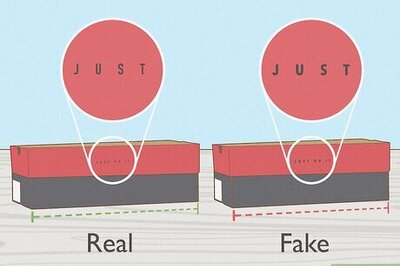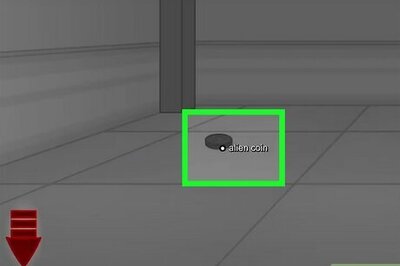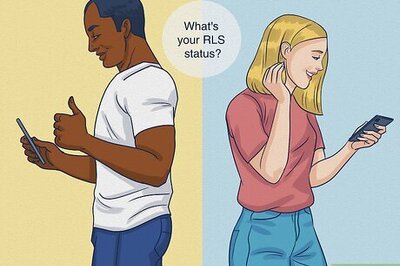
views
London: Premier League clubs Arsenal, Chelsea and Leicester emphatically dismissed any links to doping on Sunday after being embroiled in an investigation into a doctor alleged to have prescribed performance-enhancing substances.
The doctor, Mark Bonar, was secretly filmed by The Sunday Times saying he has treated more than 150 athletes in the last six years with banned substances. A British government-mandated investigation is set to look into Bonar and how the country's anti-doping agency handled allegations against him in 2014.
Bonar used Twitter on Sunday to call The Sunday Times reports 'false and very misleading'.
"I have never had a relationship with any premier football club or player," he tweeted. "I have never prescribed Androgen (hormone) therapy for the purpose of performance enhancement. I treat symptomatic men with low test levels."
The London-based Sunday Times, which sent an athlete undercover to see Bonar, said the doctor claimed to have worked with a 'few footballers' who are past or current players at Arsenal, Chelsea and Leicester. But the publication acknowledged that it had 'no independent evidence Bonar treated the players' and there was scant detail in the report.
Leicester, the surprise leader of the Premier League, insisted that it follows 'robust and comprehensive anti-doping protocols to ensure its full compliance' with anti-doping rules.
The central England team added that it 'is extremely disappointed that The Sunday Times has published unsubstantiated allegations referring to players from clubs, including Leicester City when, on its own admission, it has insufficient evidence to support the claims'.
Chelsea denounced any links to doping as 'false and entirely without foundation' while insisting the club has never used Bonar's services and has 'no knowledge or record of any of our players having been treated by him'.
Arsenal said its players participate in about 50 random drugs tests each season and none of them has failed.
"Arsenal Football Club is extremely disappointed by the publication of these false claims which are without foundation," the north London club said.
The front-page report about Bonar led to the British government hastily ordering an investigation into why the country's anti-doping agency dismissed allegations two years ago that he prescribed performance-enhancing drugs to an athlete.
The Sunday Times said that documents implicating Bonar were handed to U.K. Anti-Doping in 2014 by an unnamed athlete who had been suspended for breaching doping rules.
UKAD confirmed on Sunday that it opened an investigation into Bonar after interviewing an athlete in April and May 2014 but said the doctor fell outside its jurisdiction because he was not governed by a sport.
"UKAD had no other intelligence to corroborate the sportsman's allegations," the agency said in a statement.
"As a result, UKAD recommended to the sportsperson that more information was needed and ... that information could be passed, if appropriate, to the General Medical Council, which does have the powers to investigate possible medical malpractice and pursue if necessary."
But Britain's culture, media and sport department wants further information from UKAD about its handling of the case.
"I have asked for there to be an urgent independent investigation into what action was taken when these allegations were first received and what more needs to be done to ensure that British sport remains clean," culture secretary John Whittingdale said in a statement.
"There is no room for complacency in the fight against doping and the government is already looking at whether existing legislation in this area goes far enough. If it becomes clear that stronger criminal sanctions are needed, then we will not hesitate to act."
The World Anti-Doping Agency said that it found the reports 'deeply unsettling' and welcomed the British government investigation.
The Sunday Times secretly recorded Bonar making allegations to an unnamed 'aspiring Olympic runner' sent to see him by the paper about how banned performance-enhancing drugs had been prescribed for athletes.
"Some of these treatments I use are banned on a professional circuit," Bonar was recorded as saying. "So you have to be mindful of that. Having said that — I have worked with lots of professional athletes who do use these treatments."
The General Medical Council, the regulatory body for doctors, said that Bonar does not currently hold a license so cannot practice medicine in Britain.




















Comments
0 comment